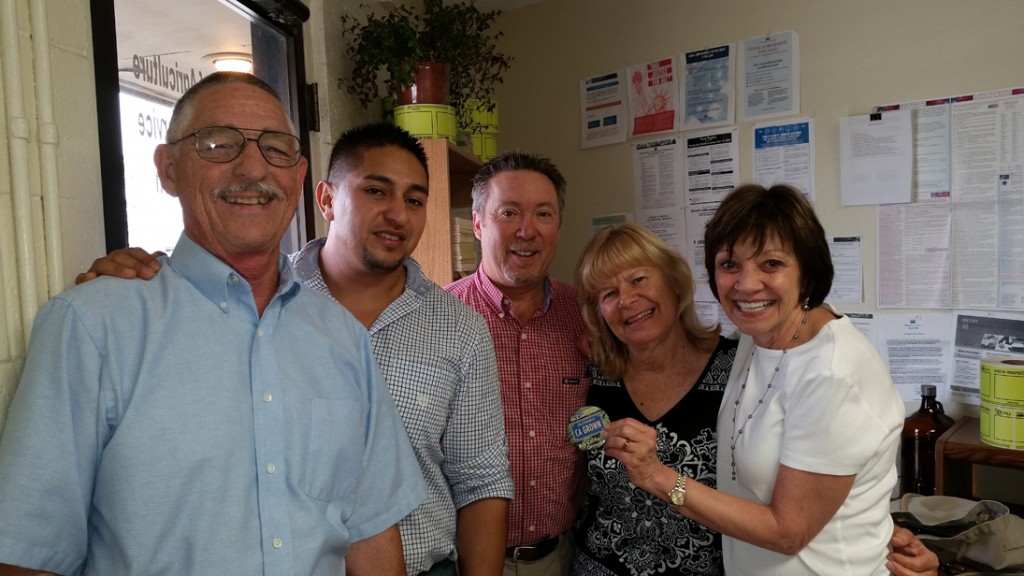You have to go back more than 70 years to get a view of a very different Southern California. Long before urban and suburban post-war development blossomed around Los Angeles, the region was a major agricultural producer. Citrus was the leading crop, and that heritage is all too apparent in the place names that remain today. An example of that is Orange County. Now, to the east, in California’s vast desert, growers learned long ago they inhabited fertile ground for dates, a tradition that endures in 2015. I had all that rich history firmly in mind earlier this month when I had an opportunity to visit Coachella Valley farmers, including date producers. I also traveled to Orange County to learn about the vital work at a local food bank to feed the hungry.
While the drought is relatively new to many of us in California, the desert is accustomed to scarcity, and water districts and their customers are always looking for innovative approaches to help farmers produce a variety of crops. While in Coachella Valley, I was able see the benefits of that innovation and adaptation with tours of table grape packing houses where they are just wrapping up the harvest, and a tour of a date packing plant. I also enjoyed meeting with farm and water leaders to discuss the drought and other current issues.
Additionally, I was honored to meet CDFA employees working in Southern California in our Shipping Point Inspection program. These employees make sure that table grapes at cooling and handling facilities meet minimum quality and maturity standards before they are shipped to market. This is important work in the supply chain to bring top-quality produce to consumers.

Secretary Ross (R) with CDFA Shipping Point Inspection employees in Southern California. From left, Bob Ferrier, Omar Soloria, Inspection Services Director Rick Jensen, and Ellen Honda.
My trip to the Orange County Food Bank was inspirational. The organization is teaming up with the United Way to reinforce a commitment to improve access to produce. The groups have a fundamental understanding that it’s essential for all of our citizens to eat healthy foods. In that vein, I was able to attend a ribbon cutting ceremony for a water-saving aquaponic vegetable garden at a Santa Ana history center that is also a partner in this effort, through a pledge to bring-in needy families to harvest the garden and take the produce back to their communities.
California agriculture is truly a miracle of abundance and diversity. It includes farmers and ranchers from the southeastern reaches of the desert and extends all the way to its northwestern corner. Our food production is astounding, feeding the world, the nation and the needy.


